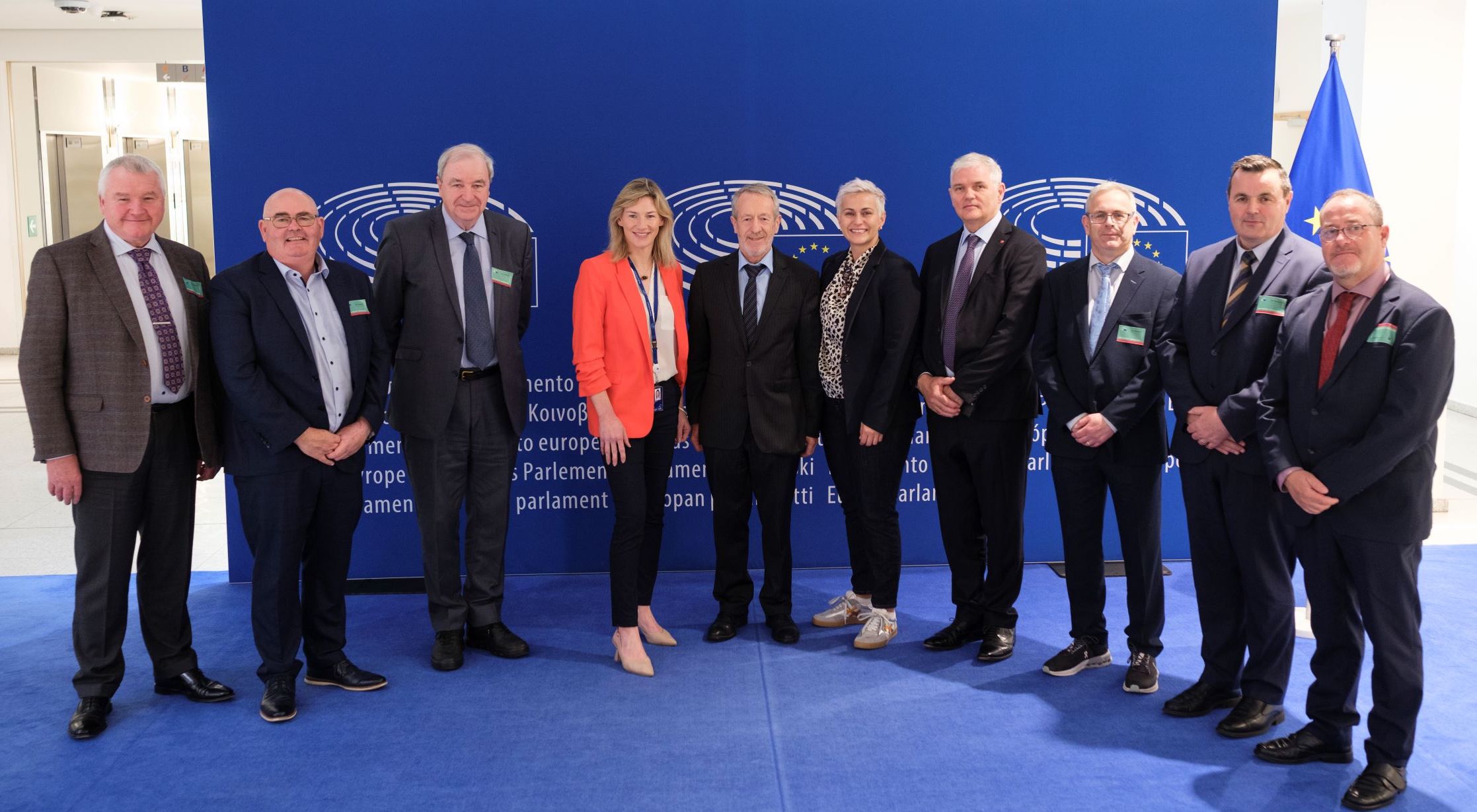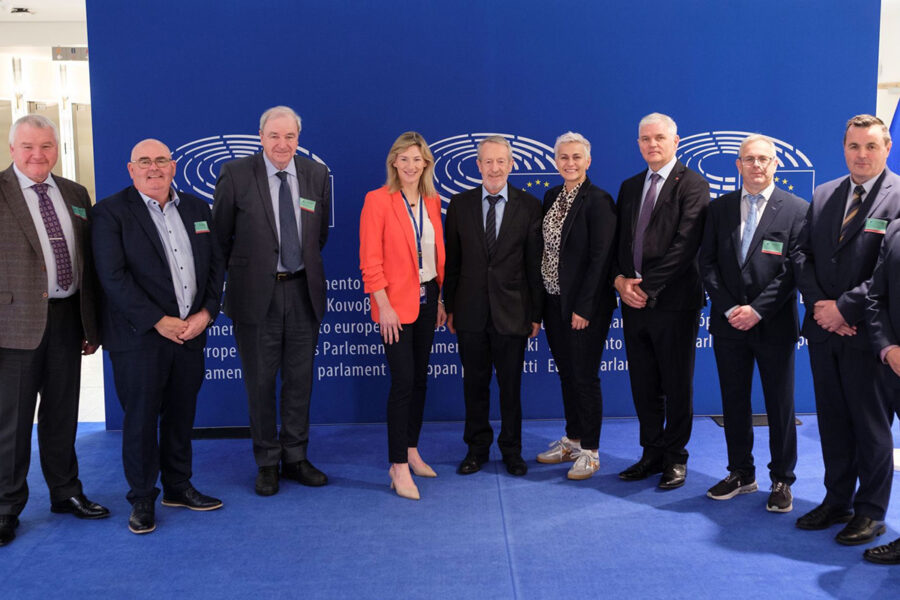The new Seafood Ireland group travelled to Brussels last week to seek support from MEPs, following confirmation in two reports of a sharp decline in Irish landings.
Noting that landings by Irish vessels fell by a ‘staggering’ €37m last year compared to 2022, according to figures from the Sea- Fisheries Protection Authority, the alliance warned that the sector is in ‘freefall’.
Statistics from Bord Iascaigh Mhara (BIM) show a similarly bleak picture, with gross profit of the fishing fleet down by ‘a massive 82%’ in 2023, the alliance noted.
The annual Business of Seafood report recently published by BIM is ‘further confirmation of the worrying decline in the seafood industry’, the alliance said. Aodh O Donnell of the Irish Fish Producers’ Organisation (IFPO) said the future viability of the fishing and seafood industries are under serious threat.
Irish South and West FPO (IS&WFPO) chief executive Patrick Murphy said: “As we approach a general election, we are asking that all our political representatives take a fundamental look at our national seafood sector and prioritise the development of the undeniable need for a recovery strategy post-election.
“We as representatives of vessels accounting for close to 95% of Irish landings are willing to meet and discuss how resources can be best allocated to instigate recovery.”
The alliance noted that the ‘headline’ from the BIM report focused on the significant government investment in the sector, largely from funding under the Brexit Adjustment Reserve (BAR).
Unlike other years, this funding is treated as part of the revenue, which masks the actual situation in the ports around Ireland, it said.
“One-off supports such as BAR cannot be used to distort the realities and challenges that all of industry are facing at present,” Irish Fish Processors’ and Exporters’ Association (IFPEA) chief executive Brendan Byrne said.
“We have businesses that are genuinely under massive pressures, from catching sector to processing, and the 2023 report is further evidence we are in a deepening crisis.”

The Seafood Ireland delegation in Brussels, from left: John Lynch, chief executive, IS&EFPO, Manus Boyle, Killybegs Stevedoring Ltd and Fine Gael councillor, Michael Treacy, EU advisor, Fine Gael MEPs Nina Carberry, Sean Kelly and Maria Walsh, Aodh O Donnell, chief executive, IFPO, Dominic Rihan, chief executive, KFO, Brendan Byrne, chief executive, IFPEA and Patrick Murphy, chief executive, IS&WFPO.
Irish South and East FPO (IS&EFPO) chief executive John Lynch said that ‘it is only right and proper to acknowledge the support provided to the sector, and we have consistently commended the work of the minister in securing this funding’.
“The investment, along with the short-term support, are all welcome and badly needed,” he said.
“However, this funding alone does not address the systemic challenges facing the sector of having no fish to catch, nor raw material to process. Costs are going up exponentially, while revenues are falling rapidly.”
Killybegs Fishermen’s Organisation (KFO) chief executive Dominic Rihan noted that the Faroe Islands and Norway are ‘seeing unprecedented growth and investment’.
“More than a dozen new pelagic vessels with increased capacity to catch and store fish onboard have entered these fleets, with more on order. Processing capacity has increased almost fivefold to meet the supply of fish coming from these vessels,” he said.
“While their vessels have access to fisheries all year round and struggle to catch their inflated quotas, contrast this to Killybegs, where the entire fleet has been tied up since April and factories closed due to a lack of fish to process.”
The alliance, which works together to affect change in fishery policy at national and EU level, comprises the KFO, IFPO, IS&WFPO, IS&EFPO and IFPEA.
This story was taken from the latest issue of Fishing News. For more up-to-date and in-depth reports on the UK and Irish commercial fishing sector, subscribe to Fishing News here or buy the latest single issue for just £3.50 here.
Sign up to Fishing News’ FREE e-newsletter here.








